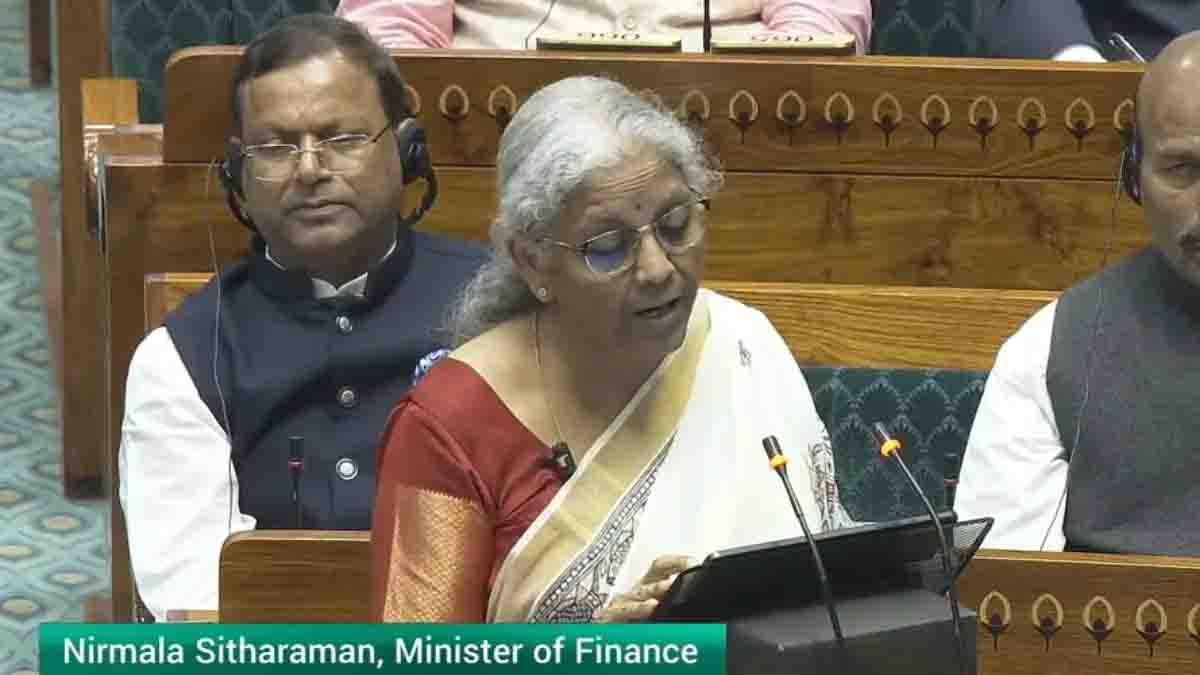New Delhi: Finance Minister Nirmala Sitharaman presented the Union Budget for 2025-26 today, a budget that seeks to balance economic growth with social welfare. While the budget offers significant tax relief to the middle class, concerns remain about the impact of potential inflationary pressures on consumer spending.
Key Highlights of the Union Budget for 2025-26 presented by FM Nirmala Sitharaman
- Income Tax Relief: The budget introduced substantial changes to the income tax regime, offering significant relief to the middle class. The most notable change is the increase in the basic exemption limit to Rs. 12 lakh, meaning individuals earning up to this amount will not be liable to pay any income tax. This move is expected to provide considerable disposable income to a large segment of the population.
- New Tax Slabs: The government also announced revised tax slabs under the new tax regime, further reducing the tax burden on individuals. The new rates are as follows:
- 0-4 lakh: Nil
- 4-8 lakh: 5%
- 8-12 lakh: 10%
- 12-16 lakh: 15%
- 16-20 lakh: 20%
- 20-24 lakh: 25%
- Above 24 lakh: 30%
- New Tax Slabs: The government also announced revised tax slabs under the new tax regime, further reducing the tax burden on individuals. The new rates are as follows:
- Focus on Infrastructure Development: The budget allocated significant funds for infrastructure development, including roads, railways, and airports. This is expected to boost economic growth and create employment opportunities.
- Social Sector Initiatives: The budget also prioritized social sector initiatives, with increased allocations for healthcare, education, and rural development.
- Fiscal Discipline: The government reiterated its commitment to fiscal discipline, maintaining a responsible fiscal deficit target.
What gets cheaper:
- Income Tax: As mentioned earlier, the significant increase in the basic exemption limit and the revised tax slabs will provide considerable tax relief to individuals, leaving them with more disposable income. This could boost consumer spending and drive economic growth.
- Essential Commodities: The government announced measures to ensure the availability of essential commodities at affordable prices. This could help mitigate the impact of inflation on the most vulnerable sections of society.
What Gets Costlier:
- Inflationary Pressures: While the budget offers some relief from the tax burden, concerns remain about the potential impact of inflationary pressures. Rising prices of essential commodities like food and fuel could erode the benefits of tax cuts.
- Indirect Taxes: While the budget did not announce any major increases in indirect taxes, the government may consider adjustments to excise duties or customs duties to maintain fiscal discipline.
- Certain Goods and Services: The budget may have implications for the prices of certain goods and services, depending on the specific measures announced and their impact on the supply chain.
Overall Impact:
The Union Budget 2025–26 presents a mixed picture for consumers. While the tax relief measures are undoubtedly welcome, the potential impact of inflation and other factors could offset some of these gains.
Expert Opinions:
- Economists: Some economists have praised the government’s focus on infrastructure development and social sector initiatives, while others have expressed concerns about the potential impact of inflation and the sustainability of fiscal consolidation.
- Industry Leaders: Industry leaders have welcomed the government’s focus on economic growth and job creation. However, they have also emphasized the need for further reforms to improve the ease of doing business and boost private investment.
- Consumer Groups: Consumer groups have welcomed the tax relief measures but have also raised concerns about the rising cost of living and the need for stronger measures to control inflation.
Conclusion:
The Union Budget 2025-26 presents a complex picture with both positive and negative implications for consumers. While the tax relief measures offer a much-needed boost to disposable income, the potential impact of inflation and other economic factors remains a key concern. The success of the budget will ultimately depend on the government’s ability to navigate these challenges and deliver on its promises.
For More News Update, Follow Read Now News

